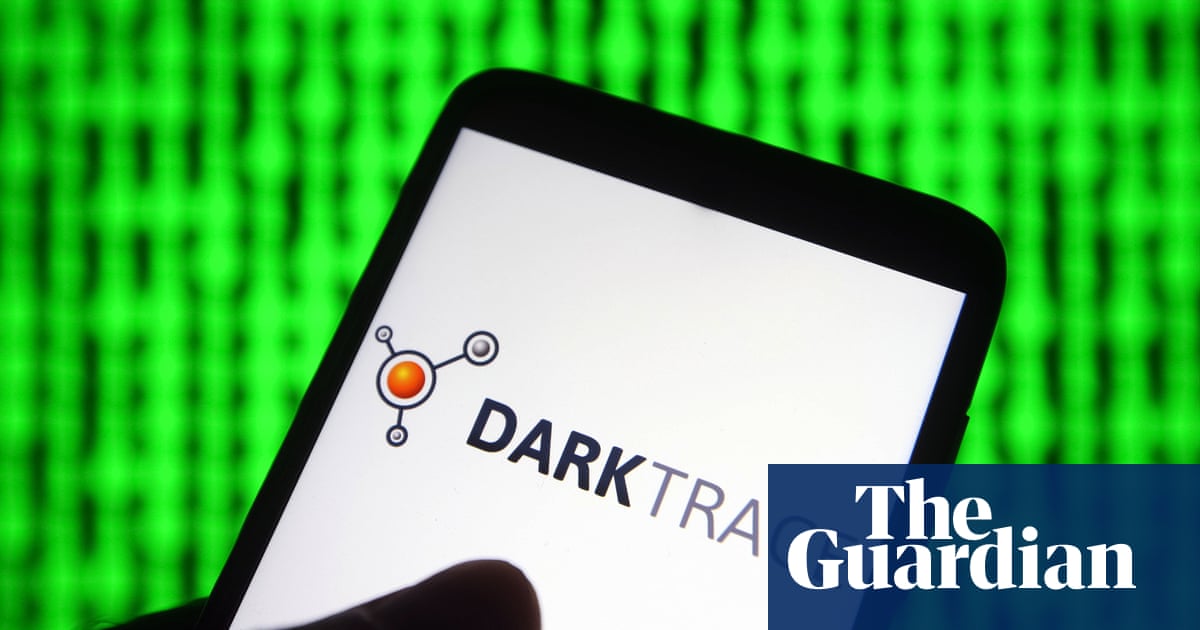
The value of Darktrace has plummeted to a record low after the emergence of two new short sellers betting against its business, as the British cybersecurity firm was hit by a new wave of criticism of its sales, marketing and accounting practices.
The company, which earlier this month warned of slowing numbers of new customers signing up for its artificial intelligence-led security products, has attracted the attention of Quintessential Capital Management (QCM) and the London-based Marshall Wace, one of the world’s biggest hedge funds with $60bn (£49bn) in client assets.
Darktrace has been dogged by criticism and struggled to emerge from the spectre of its controversial co-founder Mike Lynch, the British billionaire fighting extradition to the US over fraud charges relating to the $11bn sale of his software company Autonomy to Hewlett-Packard in 2011. Lynch denies all charges against him.
The US hedge fund QCM has backed up its short position, publishing on Tuesday a 69-page document criticising the management and operations of Darktrace.
The firm alleges that questionable and aggressive marketing, sales and accounting practices were employed by Darktrace to drive up the value of the company before its multibillion-pound flotation in London almost two years ago.
“After a careful analysis, we are deeply sceptical about the validity of Darktrace’s financial statements and fear that sales, margins and growth rates may be overstated and close to a sharp correction,” QCM said. “We would like to give our strongest possible warning to investors and believe that Darktrace’s equity [is] overvalued and liable to a major correction, or worse.”
Shares in Darktrace fell more than 7% to a record low of 198p on Tuesday after the positions of the short sellers were made public on Monday, well below the 250p at its initial public offering in April 2021, and a far cry from the heady heights of almost £10 it reached in the months after listing in London.
QCM alleges that questionable practices to ensure vital revenue growth rates, such as so-called “channel stuffing”, were employed to maintain a glowing image of soaring client sales to investors.
Issues noted also include a significant increase in revenue from multi-year contracts being booked in the first year of a deal, which inflates revenue, growth and ultimately profits in the short term.
While this is not an uncommon practice in many industries, and certainly not illegal, QCM alleges that the amount of revenue being deferred as a percentage of sales has dramatically decreased between 2018 and 2022.
As other sceptics have noted, QCM observes that Darktrace has an extremely high level of spend on marketing expenses compared with its budget on the research and development of its products.
The New York-based company believes the marketing heavy sales approach employed by Darktrace, which has been previously likened by some clients interviewed by an analyst at Peel Hunt to “snake oil”, could result in clients failing to renew after their initial three-year contracts.
“We suspect that a large portion of legitimate sales have been obtained through an extremely aggressive sales force,” it said. “Sales momentum might be about to drop as the surge in contracts signed before Darktrace’s IPO expire without being renewed by disappointed customers.”
Earlier this month, Darktrace reported that it had signed up a quarter fewer new customers in the final three months of 2022 than the previous year.
The company has downgraded full-year guidance for growth in annual recurring revenue, regular spending by existing clients and total revenue.
Despite questions over the underlying viability of Darktrace’s business model, the slowdown is being mirrored at many of the biggest players in cybersecurity as macroeconomic conditions worsen.
Shares in US-based market leader CrowdStrike and its rival Sentinel One are down 43% and 67% over the past 12 months respectively.
The company said it was focusing on bringing in bigger clients and upselling existing ones, resulting in new customer accounts worth on average 17% more in revenue than those signed up in 2021 and contract renewals up by 12%.
Darktrace is led by Poppy Gustafsson, who co-founded it in 2013 aged 30, one of the dozens of former Autonomy employees at the firm.
“We would like to provide our strongest possible warning to Darktrace investors and invite them to read our report carefully,” said Gabriel Grego, a founder of QCM, which has taken a 0.86% position in Darktrace.
Marshall Wace, which has taken a 0.9% position in Darktrace and is also shorting stocks including Burberry, The Hut Group and the owner of British Airlines, declined to comment.
A spokesperson for Darktrace said: “As a UK listed business, our management team and board take our fiduciary responsibilities very seriously and have full confidence in our accounting practices and the integrity of our independently audited financial statements.
“We have rigorous controls in place across our business to ensure we comply fully with IFRS accounting standards. We’re proud of the business we have built, which today helps to protect over 8,100 customers around the world from cyber disruption.”
David Reynolds, an analyst at research firm Davy UK, said that in the trust-based world of cybersecurity the report tarnished Darktrace’s reputation. “[The report] pulls no punches,” said Reynolds, in a note to clients on Tuesday. “Darktrace operates in the cybersecurity arena and trust is everything. QCM’s report undermines that trust.”
Shares in Darktrace closed at 210p, down more than 4%, on Tuesday.











